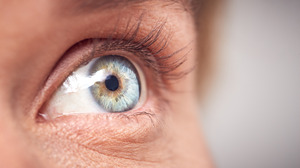
Diabetes can lead to all sorts of health issues, but did you know that it could potentially have an adverse effect on your vision? Some patients with diabetes suffer from an eye disease known as diabetic retinopathy, which can easily result in sight loss if it’s not treated quickly. Being able to recognize the problem is crucial for properly dealing with it; as such, here’s a closer look at diabetic retinopathy and some of the symptoms that can point to it.
What Exactly is Diabetic Retinopathy?
Diabetic retinopathy is the result of the blood vessels connected to the retina being damaged due to excessive sugar levels. In its early stages, it can cause the blood vessels to swell and leak; it may even lead to blockages that prevent blood from passing through at all. If diabetic retinopathy is allowed to reach its advanced stages, it can cause abnormal new blood vessels to appear.
What are the Symptoms of Diabetic Retinopathy?
It’s important to note that diabetic retinopathy may not cause any obvious symptoms at first. As such, the best way to identify it during its earliest stages is to visit your optometrist. They can perform a comprehensive eye exam to see if there are any concerning changes in your blood vessels.
As diabetic retinopathy grows worse over time, you may start to notice the following warning signs:
- Strange dots and lines known as floaters suddenly appearing in your vision.
- Blurred vision.
- Eyesight that is growing noticeably worse over time.
- Scotomas (as in dark or blank areas in your field of vision). This is rare and found very late in the disease process.
How Can Diabetic Retinopathy Be Treated?
Diabetic retinopathy should be addressed as soon as possible to prevent the issue from growing even worse. This often involves the use of anti-VEGF medication, which helps block the protein responsible for blood vessel growth in the eye. Other options include laser treatment and eye surgery.
Naturally, getting your diabetes under control is an essential step for treating diabetic retinopathy. Managing diabetes typically means making strategic changes to your diet as well as taking any medications that you have been prescribed.
The key thing to remember is that diabetic retinopathy is not a problem you can afford to ignore for too long. If there’s any reason to suspect you might have it, you should take the appropriate steps to have it diagnosed and treated by a professional right away. Doing so could end up making all the difference for your vision in the long run.
About the Author
Dr. Jordana Chettiparampil is a therapeutic optometrist who graduated from the University of Houston College of Optometry and holds membership with the American Optometric Association as well as other organizations. She is skilled when it comes to the diagnosis and management of a variety of retinal eye diseases. If you suspect that you have diabetic retinopathy, you can schedule a consultation with Dr. Chettiparampil at Richmond Eye Experts by visiting her website or calling (832) 685-2020.

